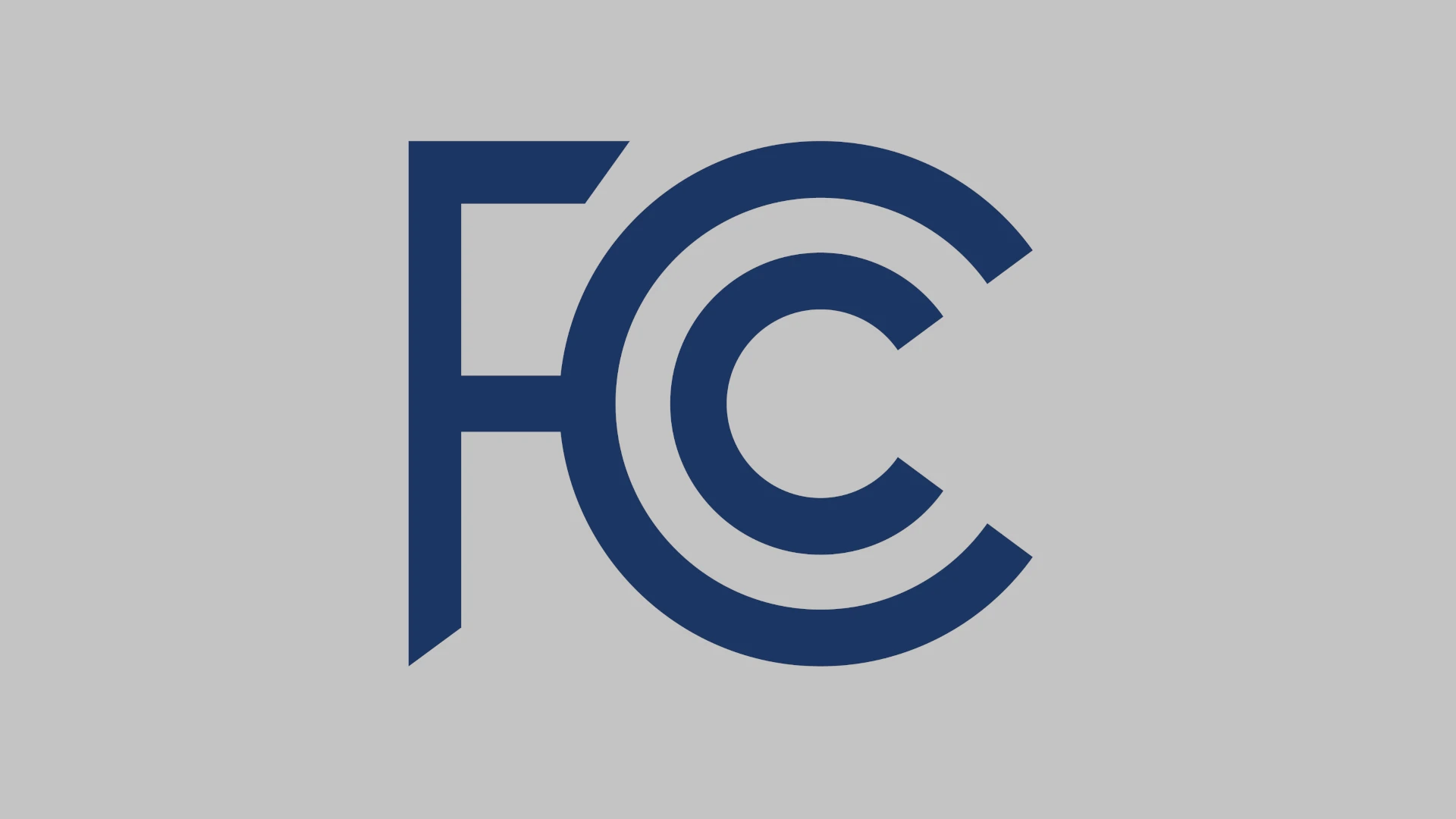The Federal Communications Commission (FCC) has been making headlines recently with several significant developments. Chairman Brendan Carr announced a sweeping new investigation into CCP-aligned entities on March 20, 2025, just days after taking his first official actions as the new Commission head. The FCC’s current focus appears to be centered on spectrum management, public safety concerns, and strengthening consumer protection measures according to Carr’s first agenda.
The regulatory body is also staying active in the media landscape, with recent investigations into various organizations’ practices. These include inquiries into Comcast’s D.E.I. practices, as well as previous investigations into major news outlets like NPR, PBS, and CBS News. Additionally, the Commission is considering new rules for AI-generated political advertisements on television and radio, showing their continued effort to adapt regulations to emerging technologies.
The telecommunications watchdog has also revisited some previous policies, notably voting to restore net neutrality regulations. This decision comes amid ongoing challenges in the telecommunications industry, with major carriers like AT&T, Verizon, and T-Mobile recently experiencing significant cellular outages that affected users nationwide.
Other FCC Related News
The latest news from the Federal Communications Commission (FCC) includes the following:
Supreme Court Likely to Uphold Universal Service Fund:
The Supreme Court seems inclined to preserve the $8 billion annual Universal Service Fund, which subsidizes phone and internet services for schools, libraries, and rural areas. Arguments were heard regarding a challenge to the fund’s constitutionality, but justices from both liberal and conservative sides expressed concerns about the negative consequences of eliminating it. The fund is collected from telecommunications providers and passed on to consumers.
FCC Investigates Disney and ABC over DEI Practices:
FCC Chairman Brendan Carr announced an investigation into Walt Disney Co. and its subsidiary ABC regarding their diversity, equity, and inclusion (DEI) programs. The investigation aims to ensure they are not violating FCC equal employment opportunity regulations by promoting discriminatory forms of DEI.
FCC Action on 911 Location Accuracy:
The FCC is taking steps to improve the location accuracy of wireless 911 calls for first responders. On March 27, 2025, the FCC proposed action to enhance Next Generation 911 capabilities.
FCC Launches Proceeding on GPS Alternatives:
The FCC has initiated a proceeding to explore complements and alternatives to GPS for positioning, navigation, and timing services.
New “One-to-One Consent” Rule for Robocalls Takes Effect:
A new FCC rule that took effect on January 27, 2025, requires telemarketers to obtain explicit consent from consumers for each specific seller they represent before making robocalls or sending robotexts. This rule aims to close the “lead generator loophole,” preventing a single consent from being extended to numerous unaffiliated businesses without the consumer’s knowledge.
Other Recent FCC Actions:
- Enforcement: The FCC continues to issue enforcement actions, including fines for pirate radio operations and violations of FCC rules.
- Spectrum: The FCC is considering the auction of AWS-3 licenses and looking at bringing more spectrum to the marketplace to fund national security.
- Infrastructure: The FCC is working on cutting red tape to encourage new infrastructure investments.
Current FCC Priorities:
Based on recent statements and initiatives, some of the current priorities of the FCC under Chairman Brendan Carr include:
- National Security: This includes addressing threats from Chinese telecommunications companies, securing networks, and establishing a Council on National Security within the FCC.
- Bridging the Digital Divide: Working to ensure all Americans have access to high-speed internet services.
- Fighting Robocalls and Spoofing: Continuing efforts to protect consumers from unlawful and unwanted calls and texts.
- Spectrum Management: Developing a national spectrum strategy to make airwaves available for commercial wireless services.
- Reforming the Universal Service Fund: There is a focus on potentially expanding the contribution base of the fund.
- Streamlining Regulations: Pursuing business-friendly regulatory reforms and being more accommodating to mergers and license transfers.
It’s worth noting that the FCC’s agenda and priorities can evolve, especially under a new administration. Commissioner Simington recently emphasized a focus on practical solutions, rural broadband development, and leveraging broadband for “reindustrialization.”
Key Takeaways
- The FCC under new Chairman Brendan Carr is prioritizing spectrum management, public safety, and consumer protection initiatives.
- Investigations into media organizations and proposed rules for AI-generated political ads demonstrate the Commission’s active regulatory approach.
- Recent FCC decisions like restoring net neutrality regulations show significant policy shifts in telecommunications oversight.
Regulatory Actions and Updates
The FCC has recently launched several significant regulatory initiatives that impact telecommunications nationwide. Major changes include new investigations into CCP-aligned entities and updates to spectrum management policies under Chairman Carr’s leadership.
New FCC Regulations
Chairman Brendan Carr announced a sweeping new investigation into CCP-aligned entities on March 20, 2025. This initiative aims to address national security concerns related to foreign-owned communications infrastructure operating within the United States.
The Commission has also opened a new deregulatory docket seeking public comment on existing rules and regulations. This comprehensive review examines all current guidance documents to identify outdated or unnecessarily burdensome requirements affecting the telecommunications industry.
An upcoming Open Commission Meeting is scheduled for Thursday, March 27, 2025. The meeting agenda focuses on spectrum allocation, public safety communications, and consumer protection measures as part of Chairman Carr’s first official policy platform.
Wireless Telecommunications Bureau Advances
The Wireless Telecommunications Bureau has prioritized expanding private investment opportunities in the communications sector. New policies aim to loosen regulatory restrictions that previously limited network expansion in underserved areas.
Spectrum management has become a central focus under the new Commission leadership. Recent allocation decisions have emphasized making additional bandwidth available for next-generation wireless services while balancing competing demands from various stakeholders.
The Bureau has also modified technical requirements for emergency alert system transmissions. These changes improve reliability during critical public safety situations while reducing compliance complexity for broadcast stations and wireless providers.
International Communications Oversight
The FCC has strengthened its approach to international communications oversight, particularly regarding foreign-owned entities operating U.S. communications infrastructure. New security protocols require enhanced disclosure of ownership structures and technical configurations.
Cross-border spectrum coordination efforts have advanced with neighboring countries. These agreements aim to reduce interference issues while maximizing efficient use of limited spectrum resources in border regions.
International data transfer requirements have been modified to align with evolving global privacy standards. The Commission now requires stronger safeguards for consumer information transmitted across international networks while maintaining operational flexibility for service providers.
Leadership and Initiatives
The Federal Communications Commission’s leadership team is focusing on national security concerns and advancing consumer protections while modernizing broadcast technologies. Recent announcements highlight a shift in priorities under Chairman Brendan Carr‘s direction.
Chairman Brendan Carr’s Priorities
Chairman Brendan Carr has recently announced a sweeping new investigation into Chinese Communist Party (CCP)-aligned entities as part of the FCC’s national security efforts. On March 20, 2025, Carr established the FCC’s new National Security Council, marking its first major action with this investigation.
The investigation specifically targets businesses with alleged ties to the Chinese government that operate within the U.S. communications infrastructure.
Chairman Carr’s priorities appear to focus on protecting American networks from foreign threats while also advancing broadband development. He has scheduled an Open Commission Meeting for March 27, 2025, where these security concerns will likely be discussed further.
This security-focused approach represents a significant shift in the Commission’s priorities compared to previous leadership.
Consumer Protection Efforts
The FCC continues its work to close the digital divide across America. Their consumer protection initiatives aim to ensure all Americans have access to competitive, high-speed internet services regardless of location.
The Commission has strengthened its complaint process, making it easier for consumers to report service issues or unfair practices by communications providers. These complaints help the FCC identify problem areas requiring regulatory action.
Recent efforts have focused on preventing price gouging and ensuring transparent billing practices from major service providers. Rural communities have received special attention as the Commission works to expand reliable internet access to underserved areas.
The FCC has also increased enforcement actions against robocalls and other unwanted communications that target vulnerable consumers.
Advancements in Broadcast Technologies
The Commission has been working closely with broadcasters to implement next-generation broadcast standards that improve signal quality and enable more interactive features for viewers.
Updates to the Emergency Alert System have been a priority, with new requirements for broadcasters to ensure emergency information reaches everyone, including those with disabilities. These improvements help deliver critical safety information during natural disasters or other emergencies.
The FCC has also streamlined licensing procedures for new broadcast technologies, encouraging innovation while maintaining necessary oversight. This includes supporting the deployment of ATSC 3.0 (NextGen TV) across more markets.
Broadcasters have welcomed these technological advancements while working to comply with updated regulatory frameworks that balance innovation with public interest requirements.
Frequently Asked Questions
The FCC has been active in several important areas recently. Key developments include changes to net neutrality policies, broadband access improvements, and new consumer protection measures.
What are the latest updates on FCC’s stance regarding net neutrality?
The FCC is considering reinstating net neutrality rules that were repealed in 2017. These rules would prevent internet service providers from blocking or throttling specific websites or services.
Chairwoman Jessica Rosenworcel has expressed strong support for returning to net neutrality principles. The commission held public hearings in early 2025 to gather feedback from consumers and industry stakeholders.
A formal vote on new net neutrality regulations is expected by summer 2025. The proposed rules would classify broadband as a utility under Title II of the Communications Act.
How has the FCC modified broadband policies to improve internet access?
The FCC recently updated its broadband speed benchmarks. The new standard defines high-speed internet as 100 Mbps download and 20 Mbps upload speeds, up from the previous 25/3 Mbps definition.
The commission allocated $3.2 billion for the Emergency Broadband Benefit program extension. This program provides discounts on internet service for eligible low-income households.
New transparency requirements now mandate that providers clearly disclose actual speeds, data caps, and fees. The FCC also established a broadband “nutrition label” to help consumers compare internet service options.
In what ways is the FCC addressing concerns about the digital divide?
The FCC expanded the Affordable Connectivity Program with an additional $14.2 billion in funding. This program helps ensure that low-income households can afford internet service and connected devices.
New mapping tools were launched to identify areas without adequate broadband access. These more accurate maps help target infrastructure investments where they’re most needed.
The commission created special tribal broadband initiatives with $1 billion in dedicated funding. These programs recognize the unique challenges facing tribal communities in accessing reliable internet service.
What recent actions has the FCC taken to regulate robocalls and protect consumer privacy?
The FCC implemented stronger STIR/SHAKEN caller ID authentication requirements for all voice service providers. This technology helps prevent caller ID spoofing and identifies potential scam calls.
New rules now require carriers to block calls from providers not complying with robocall prevention measures. Fines for robocall violations have increased, with several companies facing penalties exceeding $200 million in 2024.
The commission established a new privacy framework for telecommunications companies. This framework includes stricter data collection limitations and mandatory breach notification requirements.
How are recent FCC decisions impacting telecommunication mergers and acquisitions?
The FCC adopted more stringent review criteria for telecom mergers. These criteria place greater emphasis on how consolidation affects consumer prices and service quality.
The commission blocked two major proposed mergers in late 2024 due to competition concerns. Officials cited potential harm to consumers and reduced market competition as key factors in these decisions.
New requirements now mandate post-merger compliance reports for five years. These reports help the FCC monitor whether merged companies are fulfilling their pre-approval commitments.
What measures has the FCC implemented to support rural communication infrastructure?
The Rural Digital Opportunity Fund received an additional $4.5 billion for its second phase. This funding targets the deployment of high-speed broadband networks in unserved rural areas.
The FCC simplified permitting processes for rural broadband infrastructure projects. These changes reduce regulatory hurdles for building communications networks in remote communities.
New subsidies were created for small rural carriers upgrading their networks. The commission also established a dedicated Rural Broadband Task Force to coordinate across federal agencies and address specific challenges in rural connectivity.







